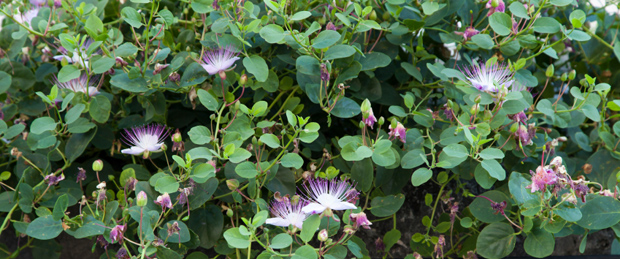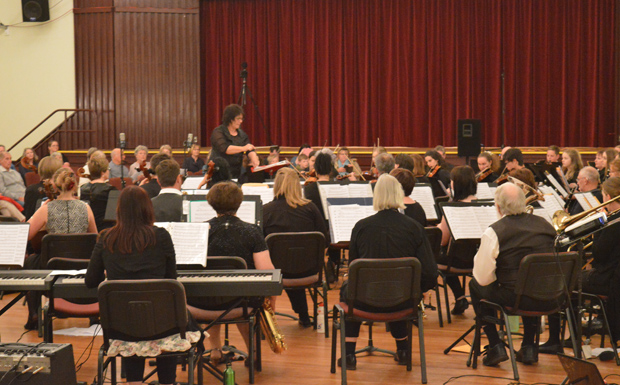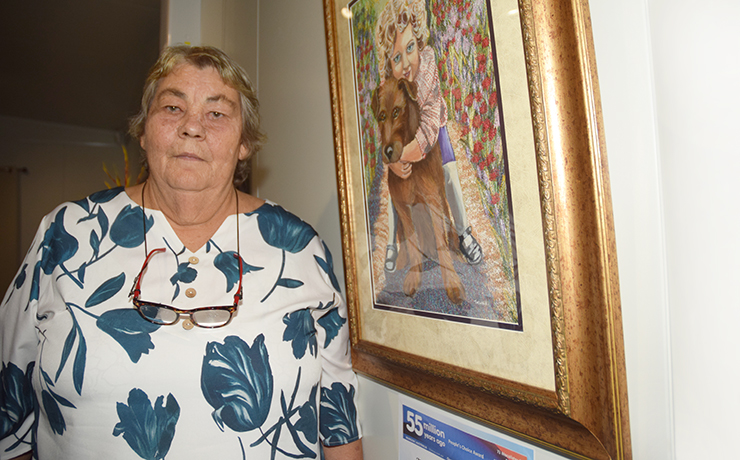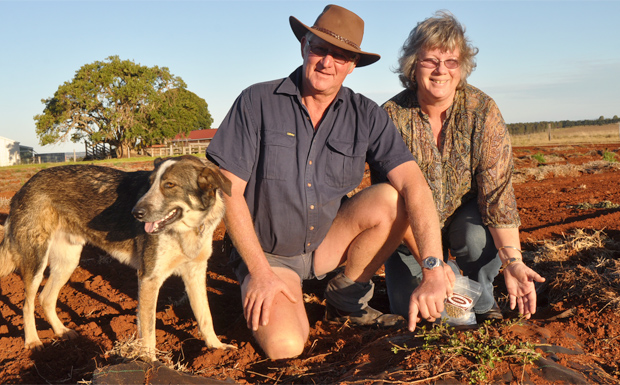
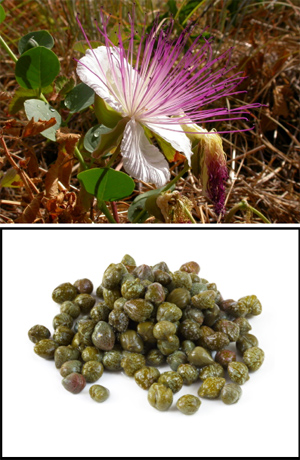
August 15, 2013
Kingaroy is the peanut capital of Australia. And navy beans still get mentioned on local signs … but capers?
The South Burnett’s latest crop, featured at the recent Regional Flavours food festival in Brisbane, is a speciality item popular in Mediterranean cuisine.
Salted and pickled, capers are used in pasta salads, pasta sauces and tapenade.
Most people haven’t a clue what caper plants even look like, a position that Allan and Mandy Evans, from Benair, could identify with just a few years ago.
But then one day Mandy was watching Landline on ABC-TV when a segment came on about the plants (the original Landline story can be found here).
At the time the couple was contemplating a move from northern NSW back to Queensland.
Allan, who grew up in Crownthorpe, and Mandy, from Lower Wonga, had found a run-down 160 acre farm at Benair.
There was an old piggery and dairy and former cropping paddocks, ie a typical, old-fashioned small mixed farm. But there was no farming equipment.
There was also an abandoned stand of the once-fashionable paulownia and the old Reedy Creek School building.
Mandy thought the climate described for the capers was just what they had at Benair.
There was also the bonus that the plant – which is basically a groundcover – didn’t require any special farming equipment (there’s a downside to this, too, of course, as it means they must be picked by hand).
“I thought, we can do that!” Mandy said.
“We don’t need anything special. We can pick them ourselves, we just have to bend our backs.”
The couple purchased 152 plants from South Australia and put them into the ground in November 2011.
A year later, they started picking their first crop.
The plants grow on small raised beds with just an hour of trickle irrigation once a week. Rabbits and kangaroos seem puzzled by the flavour and leave them alone. Likewise, birds also don’t steal the buds.
The Evans were worried that the heavy rain in January could have drowned the plants, but they sailed through the wet weather with no problems.
The capers are perennials and should continue to produce for about 25 years. So unlike most South Burnett farmers, the Evans don’t have to replant every season.
They have experimented with different fertiliser regimes but have settled on alpaca poo (yes, they have a few alpacas, too).
So what actually are capers?
When dormant, Capparis spinosa looks like a low, flat clock weed. But as the weather warms and the rain falls, the plant’s arms begin to stretch out across the soil surface. The plants can extend in width up to four metres across.
Tiny buds form along each arm. Left alone, these buds would burst and blossum into caper flowers which last for just 24 hours.
However, Allan and Mandy don’t let the buds get this far. Each is hand-picked while they are still an unripened bud.
The tiny capers are then washed and packed in sea salt. After several more washes in a salt solution, they are left for 12 days before being washed and drained and packed in salt for packaging.
The Evans picked 25kg off 150 plants from their first crop, which doesn’t sound much until you realise how small each caper actually is.
Allan and Mandy are marketing them under their “Bunya Red Farm” label.
They are currently available from their website and Taste South Burnett in William Street, Kingaroy.
The Evans are also looking to sell them through local wineries.
- Related article: Tasting Success In Brisbane
